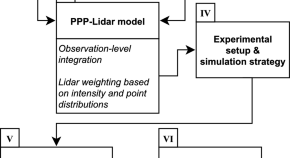Volcanic clouds detection applying machine learning techniques to GNSS radio occultations
Authors (first, second and last of 4)

Collection
Mohammad-Reza Mosavi received his B.S., M.S., and Ph.D. degrees in Electronic Engineering from Iran University of Science and Technology (IUST), Tehran, Iran in 1997, 1998, and 2004, respectively. He is currently faculty member of Department of Electrical Engineering of IUST as full professor. He is the author of about 200 scientific publications on journals and international conferences. His research interests include circuits and systems design.
Cartographic Engineering, Geodesy and Photogrammetry Dept. Universitat Politècnica de València Camino de Vera s/n, 46022 Valencia, Spain
University of Colorado Boulder, USA









































